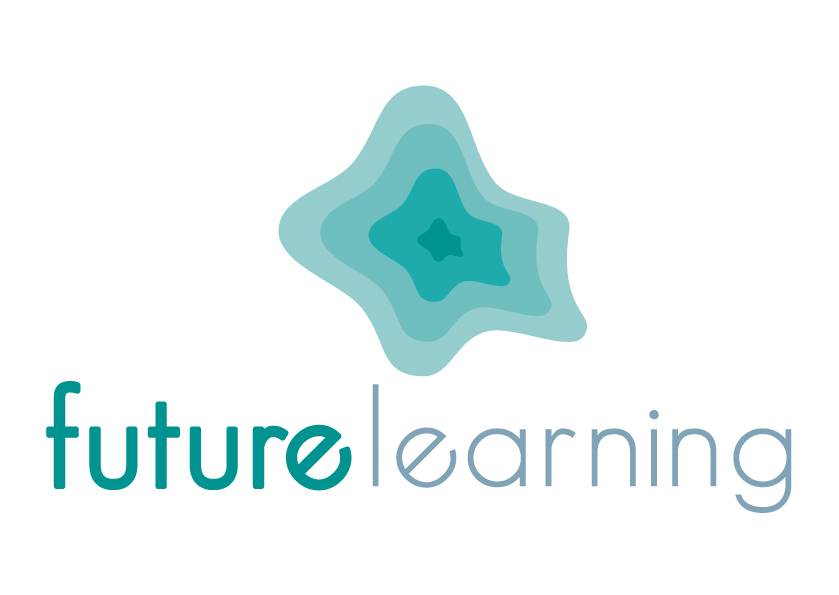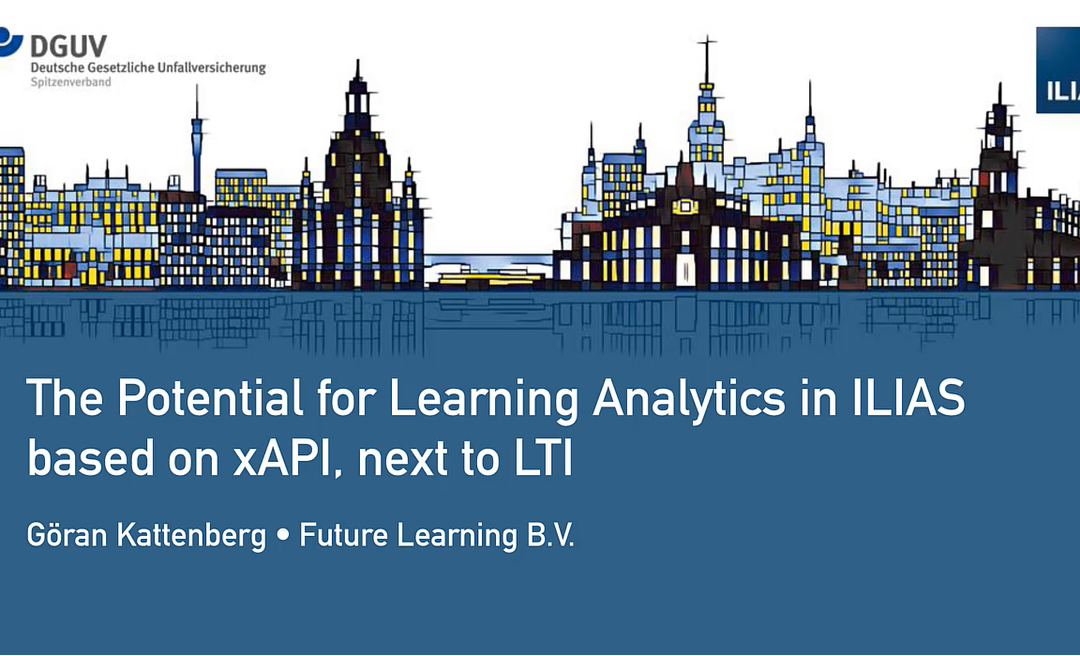Onze collega Göran Kattenberg heeft tijdens de Internationale ILIAS Conferentie in Dresden de interessante presentatie ‘The potential for Learning Analytics in ILIAS based on xAPI, next to LTI‘ gegeven. Nu de opnames van de presentaties gepubliceerd zijn, willen we Görans verhaal natuurlijk graag hier delen.
Göran is in 2008 betrokken geweest bij de ontwikkeling van SCORM 2.0 via LETSI. Dit was gebaseerd op een feitelijke ervaring met een klant op dat moment. Uiteindelijk werd SCORM 2.0 losgelaten omdat het dreigde te complex te worden als opvolger voor SCORM. De meeste ideeën die zijn ontwikkeld voor SCORM 2.0 werden echter in 2013 daadwerkelijk in de xAPI gebruikt. Een interessant concept in xAPI is het gebruik van lagen om het complexiteit probleem aan te pakken. Het werken met lagen is interessant en nuttig om als implementatiemodel te gebruiken in ILIAS (van minimale rendabiliteit naar meer toegevoegde waarde na verloop van tijd). Het lagen principe maakt het mogelijk om te gaan met de inherente complexiteit van gegevensanalyse en leeranalyses.
Een beschrijving van de xAPI-lagen
Laag 1:
De Experience API is een gemoderniseerde versie van SCORM die ons verlost van de verouderde constructies van weleer. Dus, xAPI is eigenlijk ontworpen als een opvolger van SCORM op het meest basale niveau. Dit betekent robuustere API’s en implementatiescenario’s (importpakket, start vanaf server – zoals bij AICC, offline – bijv. mobiele telefoon of VR-headset). Dit is al een grote toegevoegde waarde voor gebruikers/klanten, aangezien de huidige SCORM-implementaties (overigens niet die in ILIAS!) erg onbetrouwbaar kunnen zijn. Dit vereist een goed lanceringsmechanisme (dat LTI biedt en ook CMI5).
Laag 2:
Met de Experience API kunnen we iedere leerervaring opnemen, inclusief informeel leren, waardoor we een veel rijker beeld krijgen van het leertraject van een individu. Een paar voorbeelden zijn: interactieve video-tracking, 360 interactieve multibranch-video, simulaties, (multiplayer) serious games, sociale multiplayer-ervaringen en speurtochten. Op alle niveaus komen deze vormen van informeel leren steeds vaker voor, dus ook in de universitaire wereld.
Laag 3:
De Experience API bevrijdt de gegevens van de beperkingen van het besloten LMS. Alle gegevens zijn ook buiten het LMS beschikbaar, voor extra gegevensverwerking en het maken van drill-down rapportage, dashboard etc. ook over anonieme gegevens (de meeste wetenschappelijke gegevens zijn hoe dan ook anoniem).
Laag 4:
De Experience API is in staat om de ‘heilige graal’ te bereiken die door trainingsafdelingen overal wordt gezocht. Het correleren van taakprestatiegegevens met trainingsgegevens om de effectiviteit van de training en nog veel meer te beoordelen. Trainingsgegevens kunnen worden gecombineerd en vergeleken met gegevens uit de praktijk, zoals werkelijke werkprestaties, zodat de effectiviteit van training en opleiding kan worden gecorreleerd met werkelijke prestaties. En dat is waar leren uiteindelijk allemaal om draait.
Internationale ILIAS Conferentie
Deze presentatie was één van de vele presentaties en workshops tijdens de 18de Internationale ILIAS Conferentie op 26 en 27 september 2019 in Dresden. Neem ook eens een kijkje bij de andere presentaties die gefilmd zijn. En wat het programma nog meer bood. Dit jaarlijks terugkerend evenement is beslist de moeite waard om te bezoeken!
De volgende conferentie zal op 10 en 11 september 2020 in Dortmund gehouden worden.


Recent Comments